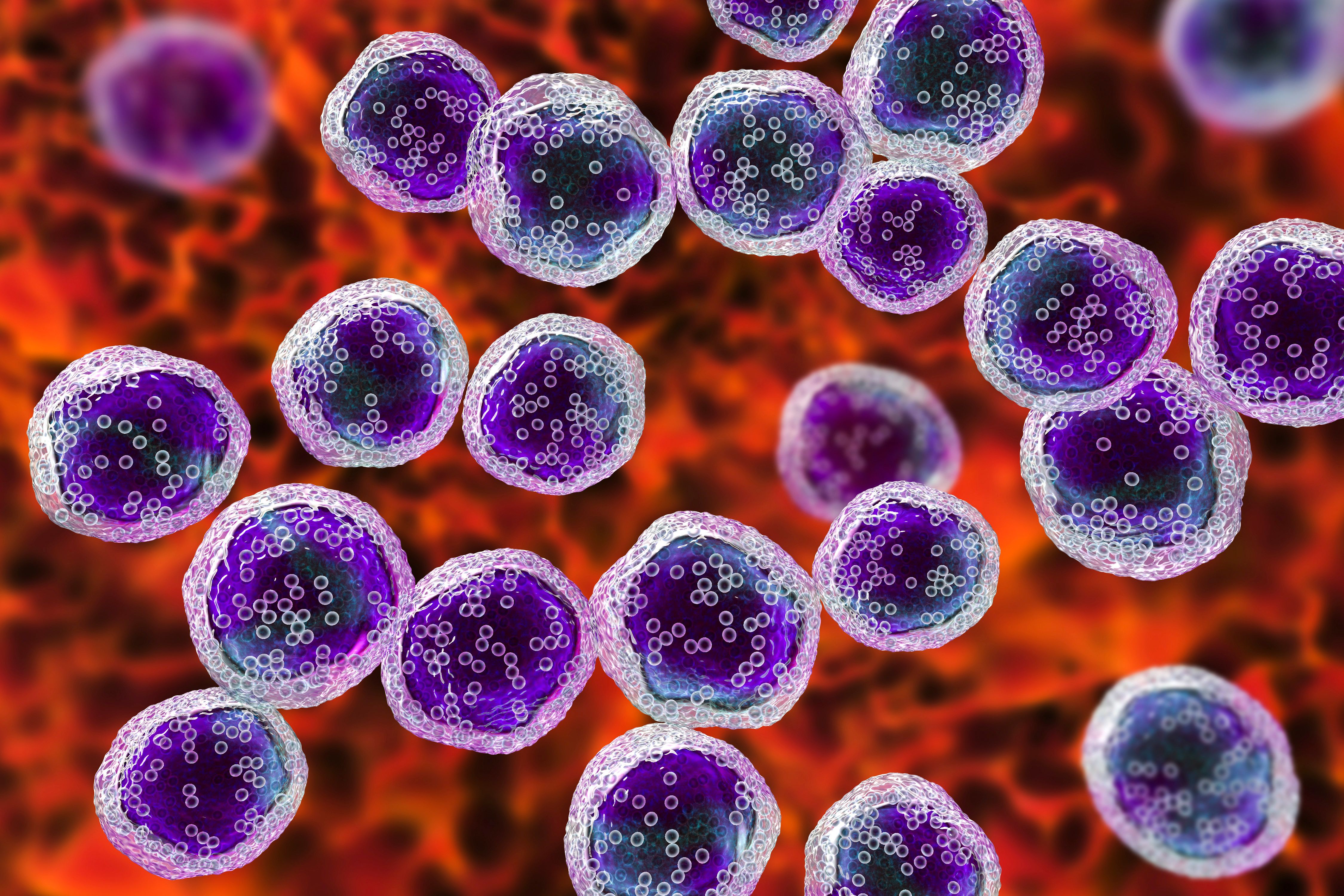Article
Data Show Promise of Pirtobrutinib in Treatment of CLL, SLL
Author(s):
Pirtobrutinib is a non–covalent (reversible) BTK inhibitor, demonstrating a 73.3% overall response rate with a median follow-up of 19.4 months among patients with chronic lymphocytic leukemia or small lymphocytic lymphoma.
Loxo@Lilly, the oncology unit of Eli Lilly and Company, announced additional and detailed results from the BRUIN phase 1/2 trial (NCT03740529), evaluating the efficacy and safety of the investigational use of pirtobrutinib in adults with chronic lymphocytic leukemia (CLL) or small lymphocytic lymphoma (SLL) previously treated with a Bruton tyrosine kinase (BTK) inhibitor.
Dr_Microbe - stock.adobe.com

Pirtobrutinib, a non–covalent (reversible) BTK inhibitor, demonstrated a 73.3% overall response rate (ORR) in the study. The results of the study were published in the New England Journal of Medicine and expanded on data presented at the 2022 American Society of Hematology Annual Meeting.
"Patients with relapsed or refractory CLL or SLL following treatment with a covalent BTK inhibitor represent a population with limited treatment options," Jennifer Woyach, MD, professor and hematologist-oncologist at The Ohio State University Comprehensive Cancer Center Arthur G James Cancer Hospital and Richard J Solove Research Institute, said in a statement. "These data support the potential for pirtobrutinib to extend the benefit of BTK inhibition for patients with CLL or SLL with a once daily oral therapy."
Investigators included 247 individuals with CLL or SLL who were previously treated with a BTK inhibitor. Patients were enrolled across both the phase 1 and 2 parts of the study in July 2022. Approximately 77% of individuals discontinued prior BTK inhibitor therapy due to disease progression. The primary endpoint consisted of the best ORR, including a partial response (PR) or better using the 2018 International Workshop on Chronic Lymphocytic Leukemia response criteria.
Additional endpoints included ORR when PR included lymphocytosis, progression-free survival (PFS), overall survival (OS), safety, and exploratory analyses of biomarkers.
Investigators found a complete response (CR) in 1.6% and a PR in 71.3% of patients who had a prior BTK inhibitor therapy. In an analysis of 100 individuals previously treated with BTK inhibitors and B-cell lymphoma 2 (BCL2) inhibitors, there was a 70% ORR and PR, and there were no CRs.
The median PFS for individuals with prior BTK inhibitor use was 19.6 months with a median follow-up of 19.4 months. For those treated with BTK and BCL2 inhibitors, the median PFS was 16.8 months with a median follow-up of 18.2 months.
In a subgroup analysis of those who were naïve to BCL2 inhibitors, the ORR was 84.4%, including a PR with rebound lymphocytosis. The median PFS was 22.1 months.
Investigators also found that the median time on treatment was 16.5 months.
The safety profile was consistent with the previously reported data. The most common treatment-emergent adverse events (TEAEs) were infections, bleeding, and neutropenia. The TEAEs that were most frequently reported at grade 3 or higher included infection and neutropenia.
The incidence of treatment-related grade 3 or higher atrial fibrillation, hemorrhage, and hypertension were relatively low, according to the investigators. Furthermore, the study authors said that treatment-related AEs lead to a dose reduction in 4.7% and discontinuation in 2.8% of patients.
The company will be studying pirtobrutinib in CLL and SLL within multiple phase 3 studies, according to the press release.
Reference
New England Journal of Medicine published BRUIN phase 1/2 trial data for pirtobrutinib in BTK inhibitor pre-treated adult patients with chronic lymphocytic leukemia or small lymphocytic lymphoma. News release. Lilly. July 6, 2023. Accessed July 6, 2023. https://investor.lilly.com/news-releases/news-release-details/new-england-journal-medicine-publishes-bruin-phase-12-trial-data
Newsletter
Stay informed on drug updates, treatment guidelines, and pharmacy practice trends—subscribe to Pharmacy Times for weekly clinical insights.






